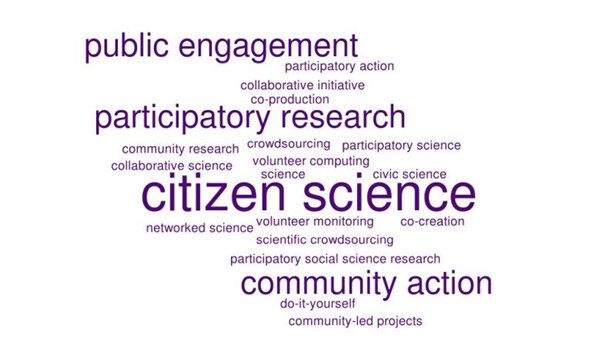What might a Citizen Science approach in your research project look like?
By Harry, on 27 March 2023
Guest post by Sheetal Saujani, Citizen Science Coordinator
Have you thought about including members of the public in your research? Would you like to connect and collaborate with the community around you? Alternatively, would you like to work with project leaders to answer real-world questions and gather data?
Broadly defined, citizen science is research undertaken by members of the public, often in collaboration with academic or research institutions or similar. Citizen science is a diverse practice involving various forms and aims of collaboration between academic and community researchers and a broad range of disciplines.
What are the great things about Citizen Science?
Working together as part of a community with professionals, citizen scientists can play an important part in genuine discovery, experiments, data collection and analysis. Through citizen science, any one of us can take part in extraordinary research!
We can improve our community whilst at the same time helping to provide answers to some of the big questions about the world we live in. Whether we participate in projects that measure air quality, monitor damage from storms, or track where our rubbish is going, we can help solve problems and influence a better future for our society.
The Office for Open Science and Scholarship advocates a broad approach to citizen science, so whether you call it citizen science, participatory research, community action, co-production, public engagement, or anything else, we’re all working together to strengthen UCL activities in this area!
What do Citizen Science projects look like?
Take a look at some of the exciting citizen science projects at UCL run by various research groups and departments at UCL. Some of these projects have now been completed.
And below are a few newer ones (this list is not exhaustive):
- Take part in the Big Repair Project!
- Read about the 100 Cyclists Project!
- Learn more about Eyes on Eyes!
Also, if you’re interested, there are many platforms and projects happening outside of UCL (below are just a few):
- Thousands of people across the country take part in the Natural History Museum’s crowdsourced science projects.
- On the SciStarter website you can join and contribute to science through thousands of amazing research projects and events.
- With more than one million volunteers, Zooniverse is one of the biggest citizen science platforms in the UK.
- If you’re interested in Biology, Ecology or Earth Science, check out the citizen science projects run by the National Geographic Society.
- The InSPIRES Open Platform is an online collaborative and crowdsourced database featuring many citizen-led participatory research and innovation projects.
- Patientslikeme is an online platform where patients can share and learn from real-time, outcome-based health data and contribute to the scientific conversation surrounding thousands of diseases.
- The Globe at Night project aims to raise awareness about light pollution and its impacts on communities. You can report your night sky brightness observations daily.
What is UCL doing around Citizen Science?
Our Office is working to raise awareness of citizen science approaches and activities, with the aim of building a support service and a community around citizen science. The plan is to bring together colleagues who’ve run or are currently running citizen science or participatory research projects to share good practices and experiences with each other and support and encourage others to do the same!
If you are interested in citizen science, we would really like to hear from you, so please get in touch with us via email at openscience@ucl.ac.uk and tell us what you need.
 Close
Close






